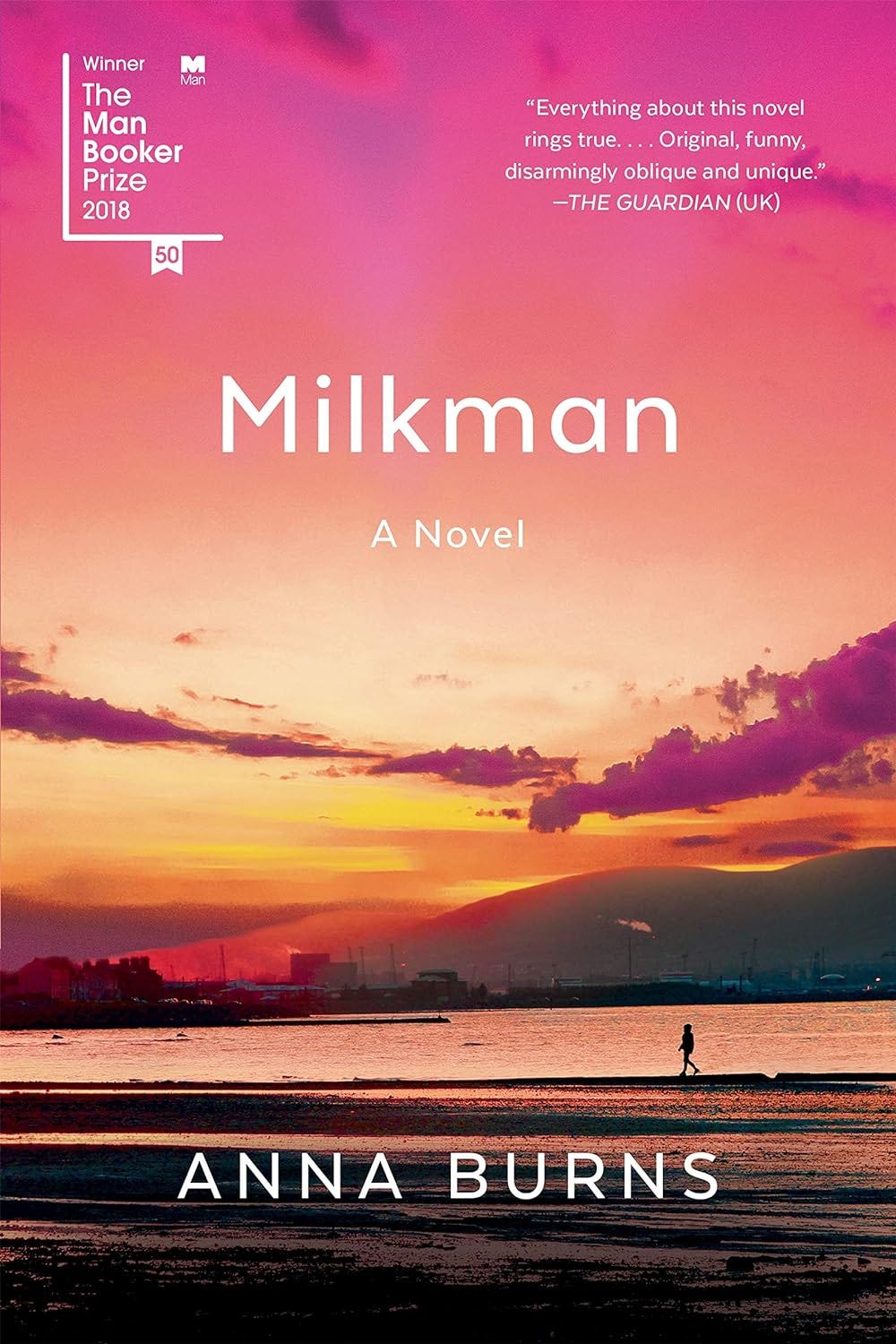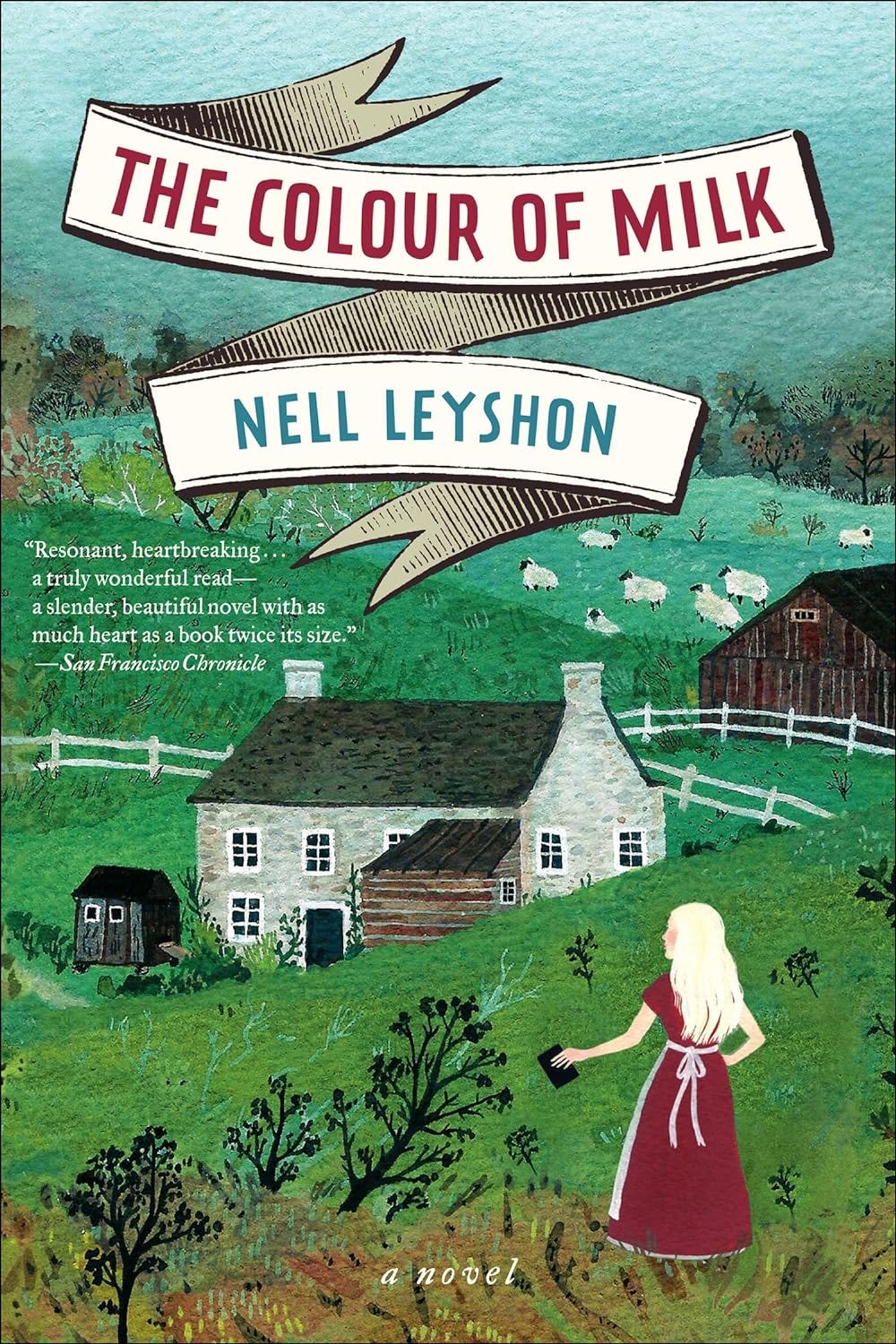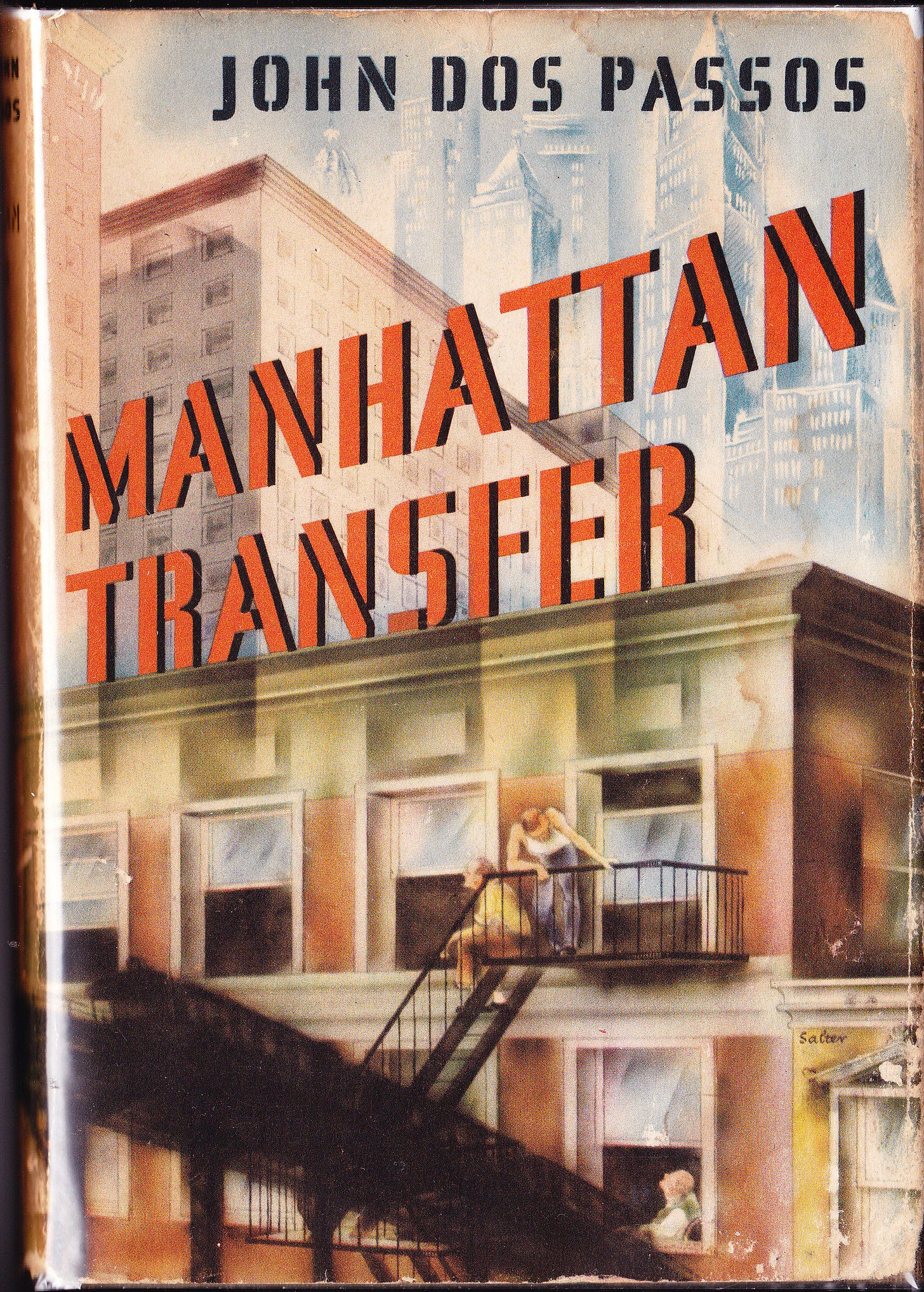Voice [3]
Forty More Voicey Novels/Stories/etc.
[Hover cursor over footnote for pop-up]
Part Three of a Three-Part Post on Voice in Fiction
Link to Part One: Voice [1]: What Voice Is
Link to Part Two: Voice [2]: A Field Guide
The Rabbit Hutch, Tess Gunty (2022)
Widespread Panic, James Ellroy (2021)
Girl, Woman, Other, Bernardine Evaristo (2019)
Milkman, Anna Burns (2018)1
My Year of Rest and Relaxation, Ottessa Moshfegh (2018)2
Sing, Unburied, Sing, Jesmyn Ward (2018)
Agents of Dreamland [novella], Caitlín R. Kiernan (2017)
A Girl Is a Half-formed Thing, Eimear McBride (2014)
Tram 83, Fiston Mwanza Mujila [trans. by Roland Glasser] (2014)
Tenth of December [stories] George Saunders (2013)3
The Panopticon, Jenni Fagan (2012)
How Should a Person Be? Sheila Heti (2012)
The Colour of Milk, Nell Leyshon (2012)
Room, Emma Donoghue (2010)
The Last Novel, David Markson (2007)
Duchess of Nothing, Heather McGowan (2006)
Explorers of the New Century, Magnus Mills (2005)
White Teeth, Zadie Smith (2000)
Pussy, King of the Pirates, Kathy Acker (1996)
Accordion Crimes, E. Annie Proulx (1996)
Infinite Jest, David Foster Wallace (1996)
The Windup-Bird Chronicle, Haruki Murakami (1994)
Jesus’ Son, Denis Johnson (1992)
The Commitments, Roddy Doyle (1987)
Swimming to Cambodia [monolog], Spalding Gray (1985)
The Natural Man, Ed McClanahan (1983)4
The Unbearable Lightness of Being, Milan Kundera (1982)
The Last Good Kiss, James Crumley (1978)5
The Book of Common Prayer, Joan Didion (1977)
Something Happened, Joseph Heller (1974)6
Child of God, Cormac McCarthy (1973)
Gravity’s Rainbow, Thomas Pynchon (1973)
Night, Edna O’Brien (1972)
Fear and Loathing in Las Vegas, Hunter S. Thompson (1971)7
Trout Fishing in America, Richard Brautigan (1967)
Cat’s Cradle, Kurt Vonnegut (1963)8
Naked Lunch, William S Burroughs (1959)
The Adventures of Augie March, Saul Bellow (1953)9
The Horse’s Mouth, Joyce Cary (1944)10
The Big Sleep, Raymond Chandler (1939)
Ask the Dust, John Fante (1939)
Manhattan Transfer, John Dos Passos (1925)11
Milkman: The 1970s, Northern Ireland, the Troubles. Winner of the 2018 Booker Prize, also the National Book Critics Circle Award, as well as the 2020 International Dublin Literary Award.
Moshfegh: This is a novel I’ve managed to work into a number of posts, notably the one called Guilty Pleasures . . . check out the footnote there [comes with a bit of bonus content]. You’re welcome.
Saunders: Especially “Victory Lap” and “The Semplica Girl Diaries." One of the major story writers of our day. Also wrote the brilliant, sui generis work, Lincoln in the Bardo (2017).
McClanahan: A rangy Kentucky boy, by way of Stanford, friend of Wendell Berry, Ken Kesey and assorted Merry Pranksters. I knew him in the mid-1970s in Montana when he fresh off a desperately funny profile, in Playboy, of a Tex-Mex Elvis impersonator, “Little Enis Pursues His Muse” (my sense of decorum suggests I say nothing more about Enis’s talents).
But one night he read another piece, “My Job at the New Paradise Theater in Hamer’s Lick, Kentucky,” which has its own little niche in my heart. Introducing it, he said he was going to give us the last part of the last line, which was “. . . and I just knew I had to get me some of it.” A line that was, he promised, “as beguiling as it was misleading.” A bit of schtick you halfway forgot about until, after detailing the travails of the long-suffering owner/impresario and his large-boned daughter, he says it was on the screen of this small-town movie house that he found “my first intimations of the power of art, and I just knew I had to get me some of it.”
Crumley: Texan by birth but spent much of his life in Missoula, Montana, writing detective novels, being, generally, a larger-than-life figure, friend to Missoula’s rich cadre of writers; in particular, Crumley was a pal of poet Richard Hugo, whose poem “Degrees of Gray in Philipsburg” was the source of this novel’s title.
Heller: I always call this his other masterpiece. It’s not a happy book, but it reads really well. Sometimes flawed narrators are great to listen to. Bob Slocum is one of those, starting with Something Happened’s opening line: I get the willies when I see closed doors.
But a couple of other points: First, the title (which I remember saying in some early Substack post) is one of the great sandbaggers, like Sophie’s Choice—you’re deep into the book before you discover that—as promised!—Sophie has to make a choice. Suffice it to say that in Heller’s novel something happens. Also, as the book progresses you see that, in a way, it has two voices. The first is Slocum’s regular first-person narration. But as he talks to us, a second voice appears, commenting within parentheses, on what’s just been said—slipping in more detail, more supporting evidence, or disagreeing with the first voice, correcting the story, to the point where it feel like there’s really two flows of narrative. You could call it a stylistic tic, but it’s really effective and illustrates Slocum’s psyche.
Fear and Loathing: A major contributor to the “New Journalism” genre, along with Tom Wolfe and others. See the note here: Birth Year Project: 1971. And read about Thompson here:
https://en.wikipedia.org/wiki/Hunter_S._Thompson
Cat’s Cradle: My favorite Vonnegut . . . until I read Slaughterhouse-Five (1969). Nice, nice, very nice.
Augie March: Years ago, a piece in The Atlantic (I think), said the fabled Great American Novel had been hiding in plain sight for decades, and Augie March was it. It was the first of three National Book Awards Bellows would win. It begins:
I am an American, Chicago born, and go at things as I have taught myself,
free-style, and will make the record in my own way: first to knock, first admitted. Read more: https://en.wikipedia.org/wiki/The_Adventures_of_Augie_March
Horse’s Mouth: The final book in Cary’s “First Trilogy”—along with Herself Surprised (1941) and To Be a Pilgrim (1942). The story of Gulley Jimson, equal parts artist and scoundrel. Wickedly funny, as is the film of the same title (1958), a star turn for Alec Guinness, who also wrote the screenplay. Not to be missed. If you only know Sir Alec as Obi-Wan, check out his early comedies, Kind Hearts and Coronets (1949) and The Ladykillers (1955). It should also be mentioned that he was a prolific Shakespearean stage actor.
Read about Cary here: https://en.wikipedia.org/wiki/Joyce_Cary
Dos Passos: The USA Trilogy [The 42nd Parallel (1930), 1919 (1932), The Big Money (1936) is usually considered Dos Passos's masterpiece. But I loved Manhattan Transfer.
Sometimes you remember a book not for its story, but for its feel, its ambiance, for how it sounds . . . for the writing. Again and again, in the margins I scribbled things like: Everywhere you look, great sentences . . . and Wow and !!!.
Here’s a taste:
A car whirred across the bridge making the girders rattle and the spiderwork of cables thrum like a shaken banjo.
She stood in the middle of the street waiting for the uptown car. An occasional taxi whizzed by her. From the river on the warm wind came the long moan of a steamboat whistle. In the pit inside her thousands of gnomes where building tall brittle glittering towers.
“Say Anna,” says a broadhipped blond girl . . . “did ye see that sap was dancin wid me? . . . He says to me the sap he says See you later an I says to him the sap I says see yez in hell foist . . . an then he says, Goily he says . . . "






I audio-read Augie March a few months ago, and loved Bellow's erudition and comic timing (if such can be said of a novelist). Definitely a candidate for the Great American Novel, with the obvious, all too common caveat: 'by a white Jewish male', and it's partner 'by a white non-Jewish male.' Catch-22 belongs up there in the GAN conversation too (caveat #1).
What about a post on the GAN? (Maybe you've done this and I am revealing that I haven't read every single thing on this site (yet)). The construct of the GAN requires us to spend time chatting about great and American, of course, and how they can be contained in a novel, and what the various constraints and definitions might suggest about us as readers/critics.
Plus, then, we can speculate on caveat #3: 'by an other-than-white-male', and propose candidates. Shipping News? Poisonwood Bible? (Do GANs have to take place in America? Another thing to puzzle out.) Beloved? The Sellout? Sing, Unburied, Sing? How old do they have to be? How long before we can say they stood the test of time?